Curriculum Intent
Our intent in Science is to ensure all pupils are taught the knowledge, skills and vocabulary appropriate to their year group focussing on the key end points.
Curriculum Statement
Our aim in Science is that every child gains the skills needed to be enthusiastic about and talk knowledgeably about their enjoyment of scientific learning, exploration and discovery, starting with the world around them and beyond. Children have individual science books, in line with all core subjects and our consistency in the use of working walls, knowledge organisers and key vocabulary across every classroom promotes a scaffolded and supportive approach to developing new scientific ideas and vocabulary as children progress through their journey of new ideas and experiences.
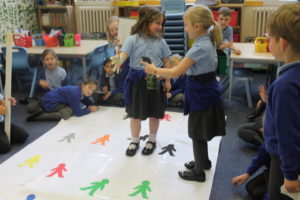
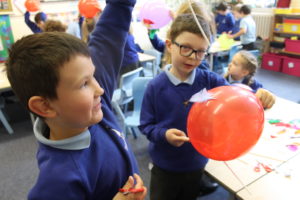
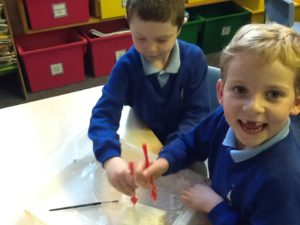
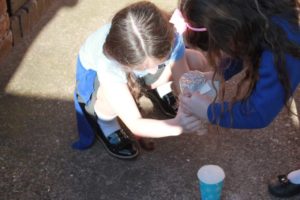
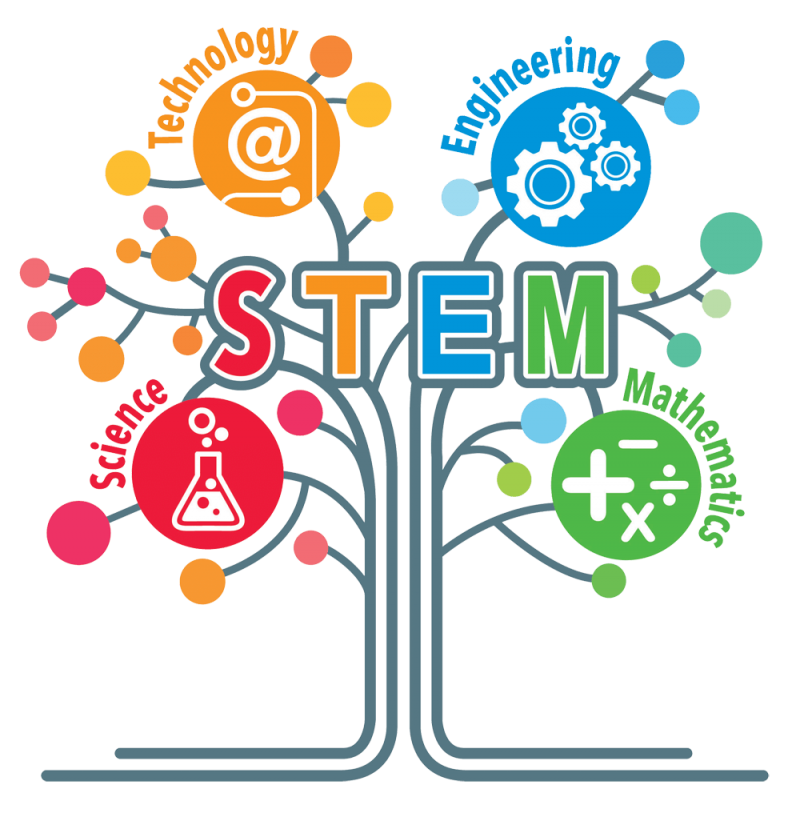
Science, Technology, Engineering and Maths: STEM activities encourage children to ask questions, make predictions, think creatively, test ideas, be analytical and find answers.
They are also fun and exciting! Why not try some at home and bring them into school for sharing assembly? We would love to share your explorations and investigations.
Try some of these STEM activities:
The Five Different Types of Scientific Enquiry
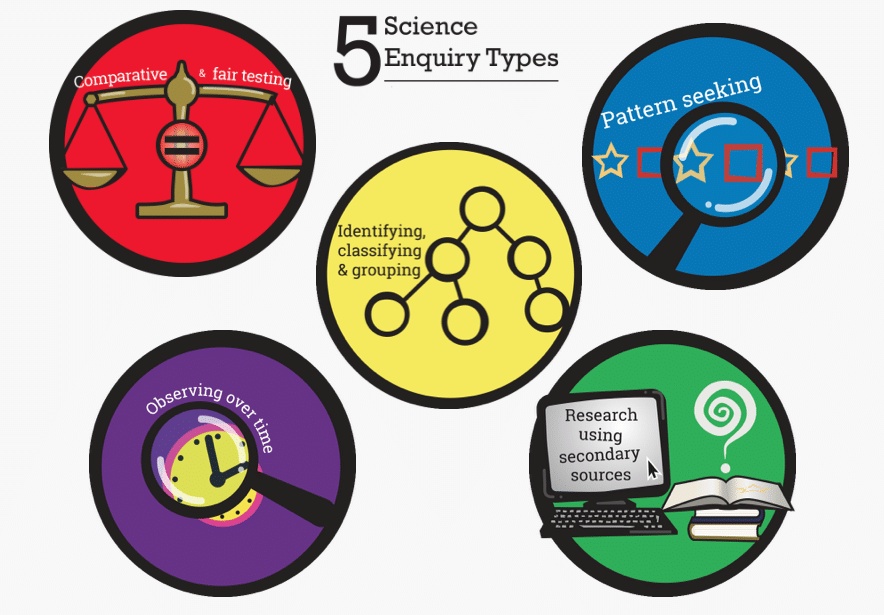
At Sound and District Primary School, in Key Stages 1 and 2, we focus on these 5 types of enquiry. Activities in the Early Years also include elements of these where appropriate. Children are supported to use their investigative skills in a variety of ways in order to raise their own questions, collect data and information and draw conclusions. This is developed through practical activities and collaborative working and discussion.
KS1 are supported to identify which of the 5 types of enquiry they will be using.
Lower KS2 children are supported and encouraged to identify for themselves which of the 5 types of enquiry is being utilised whereas in upper KS2 children are supported to explain why a particular type of enquiry is used and how it will benefit their investigation.
Try some of the interactive activities from bbc bitesize:
KS1:
KS2
| Living things | Animals including Humans | Materials | Forces | Working Scientifically |
| Light | Electricity | Earth and Space | ||
Knowledge Organisers
Find out more about the key learning and vocabulary in each year group:
Year One
| Animals including humans year 1 | Plants year 1 | Everyday materials year 1 | Seasonal changes year 1 |
Year Two
| Animals including humans year 2 | Plants year 2 | Uses of everyday materials year 2 | Living things and their habitats year 2 |
Year Three
| Animals including humans year 3 | Forces and magnets year 3 | Light year 3 | Plants year 3 | Rocks year 3 |
Year Four
| Animals including humans year 4 | Electricity year 4 | Living things and their habitats year 4 | Sound year 4 | States of matter year 4 |
Year Five
| Properties and changes of materials year 5 | Animals including humans – year 5 | Earth and space – year 5 | Forces year 5 | Living things and their habitats year 5 |
Year Six
| Animals including humans – Year 6 | Electricity – year 6 | Evolution and inheritance – year 6 | Light – year 6 | Living things and their habitats – year 6 |
“If you want to know you ask a question. There’s no such thing as a dumb question, it’s dumb if you don’t ask it.”
Katherine Johnson – NASA Scientist
https://learningscience.co.uk/blog/2018/7/5/wow-science-a-new-child-friendly-primary-science-website
https://www.natgeokids.com/uk/
http://www.sciencekids.co.nz/gamesactivities.html
http://www.teacherstryscience.org/kids-experiments
https://www.bbc.com/bitesize/subjects/z2pfb9q
https://www.bbc.com/bitesize/subjects/z6svr82
Check out our new gallery link below to see further enrichment activities and events linked to Science.



